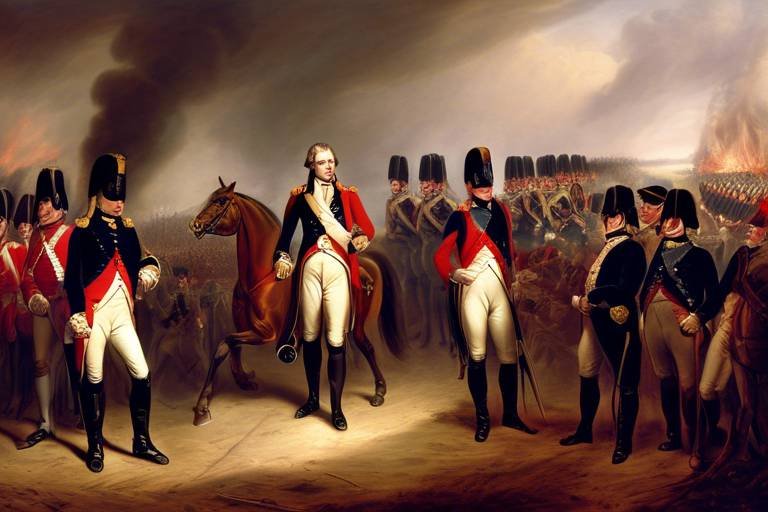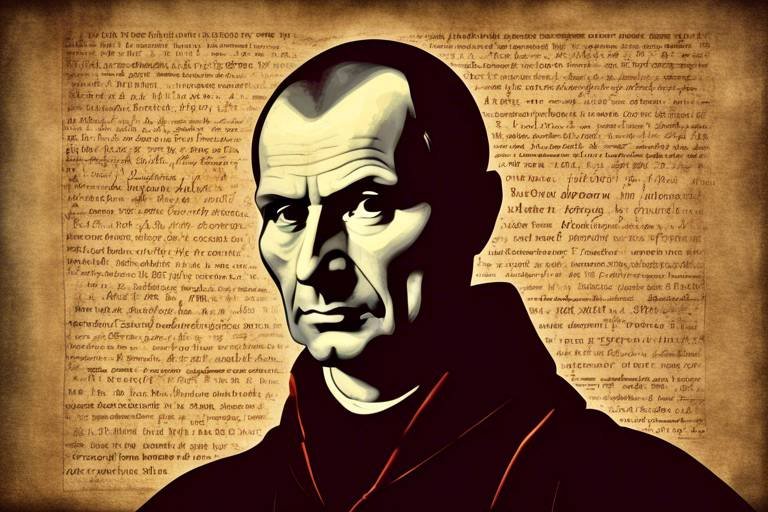Mahatma Gandhi: The Father of the Nation in India
Mahatma Gandhi, known as the Father of the Nation in India, holds a revered place in the hearts of millions for his unwavering commitment to freedom and justice. His legacy transcends time, resonating with generations past and present. Gandhi's life was a tapestry of courage, compassion, and conviction, woven together with the threads of nonviolent resistance and civil disobedience.
Born on October 2, 1869, in Porbandar, India, Mohandas Karamchand Gandhi was raised in a modest household deeply rooted in traditional values. His early years were marked by a thirst for knowledge and a keen sense of justice, foreshadowing the remarkable journey that lay ahead.
Education played a pivotal role in shaping Gandhi's worldview, instilling in him a sense of duty towards humanity and a fervent desire to bring about positive change. His experiences in South Africa, where he faced discrimination based on his skin color, ignited a fire within him to stand up against injustice and oppression.
As a key figure in India's independence movement, Gandhi led the charge against British colonial rule with a steely resolve and a steadfast belief in the power of nonviolent resistance. His philosophy of Satyagraha, or truth force, became the cornerstone of his activism, inspiring millions to join the fight for freedom.
One of Gandhi's most iconic acts of defiance was the Salt March of 1930, a symbolic protest against the British salt monopoly that galvanized the nation and captured the world's attention. Through acts of civil disobedience and peaceful protest, Gandhi demonstrated the transformative power of nonviolence in bringing about social and political change.
Beyond his role as a freedom fighter, Gandhi was a tireless advocate for equality and social justice, championing the rights of the marginalized and oppressed. His efforts to eradicate untouchability and promote communal harmony reflected his unwavering commitment to building a more inclusive society.
Gandhi's philosophy of Ahimsa, or nonviolence, permeated every aspect of his life and activism, serving as a guiding principle in his pursuit of truth and justice. His teachings on nonviolent resistance inspired a wave of social movements around the world, influencing leaders like Martin Luther King Jr. and Nelson Mandela in their struggles for civil rights and equality.
The legacy of Mahatma Gandhi endures to this day, reflected in the countless memorials, statues, and institutions dedicated to honoring his memory. His teachings on peace, tolerance, and compassion continue to resonate with people of all backgrounds, transcending borders and ideologies.
While Gandhi's contributions to India's independence are widely celebrated, his legacy is not without controversy. Criticisms of his views on caste, gender, and political strategy have sparked debate and reflection on the complexities of his character and beliefs. However, his enduring impact on the world stage remains undeniable, a testament to the enduring power of his message of love and nonviolence.

Early Life and Education
Exploring the early life and education of Mahatma Gandhi provides valuable insights into the formative years of this iconic figure. Born on October 2, 1869, in Porbandar, India, Gandhi was raised in a devout Hindu family. His father, Karamchand Gandhi, served as the Diwan of Porbandar, while his mother, Putlibai, deeply influenced his spiritual beliefs.
At the age of 19, Gandhi traveled to England to study law at the University College London. This experience exposed him to Western culture and legal systems, shaping his worldview and instilling in him a sense of justice and equality. Despite facing challenges and discrimination as an Indian student in colonial Britain, Gandhi persevered in his studies and developed a keen interest in social issues.
Upon completing his legal education, Gandhi returned to India in 1891 and struggled to establish a law practice in Bombay. His early attempts at legal practice were met with limited success, but he soon found opportunities to advocate for the rights of Indian immigrants in South Africa, where he spent over two decades fighting against racial discrimination and injustice.
Gandhi's experiences in South Africa were pivotal in shaping his principles of Satyagraha (truth force) and nonviolent resistance. Through his involvement in various civil rights movements and campaigns, Gandhi honed his skills as a leader and emerged as a powerful voice for social change. His commitment to justice and equality laid the foundation for his future role as a key figure in India's struggle for independence.

Role in India's Independence Movement
When it comes to the history of India's independence movement, one name that stands out prominently is Mahatma Gandhi. Known as the Father of the Nation in India, Gandhi played a pivotal role in leading the country to freedom from British colonial rule. His philosophy of nonviolent civil disobedience became the cornerstone of the independence movement, inspiring millions to join the fight for liberty and justice.
Gandhi's approach to resistance was unique and revolutionary. Instead of advocating for armed rebellion, he believed in the power of peaceful protest and passive resistance. This strategy not only challenged the oppressive British regime but also united the Indian population in a nonviolent struggle for independence.
One of the most iconic moments in Gandhi's leadership during the independence movement was the Salt March of 1930. In a symbolic act of defiance against British salt taxes, Gandhi led a 240-mile march to the Arabian Sea, gathering followers and supporters along the way. This peaceful protest not only captured the world's attention but also demonstrated the effectiveness of nonviolent resistance in bringing about social and political change.
Throughout his involvement in the independence movement, Gandhi emphasized the importance of unity, equality, and social justice. He worked tirelessly to bridge the divides between different religious and social groups, advocating for harmony and understanding among all communities. Gandhi's commitment to inclusivity and tolerance set him apart as a leader who truly embodied the principles of nonviolence and compassion.
Despite facing numerous challenges and setbacks, Gandhi remained steadfast in his belief that freedom could only be achieved through nonviolent means. His unwavering dedication to the cause of independence inspired generations of activists and leaders around the world, leaving a lasting impact on the history of civil rights movements globally.
Today, Gandhi's legacy continues to resonate with people from all walks of life. His principles of nonviolence, equality, and social justice remain as relevant as ever, serving as a beacon of hope and inspiration in the modern world. From monuments and memorials to educational institutions and cultural events, Gandhi's influence can be seen in various aspects of Indian society and beyond.
While Gandhi is widely revered for his contributions to India's independence, his life was not without controversy and criticism. Some have questioned his methods of nonviolent resistance, while others have raised concerns about his views on social issues such as caste discrimination. These complexities add depth to Gandhi's legacy, prompting us to reflect on the nuances of his beliefs and actions.

Salt March and Civil Disobedience
The Salt March, also known as the Salt Satyagraha, was a pivotal moment in Mahatma Gandhi's campaign against British colonial rule in India. This act of civil disobedience, which took place in 1930, involved Gandhi and his followers marching to the Arabian Sea to produce salt in defiance of the British salt monopoly.
The march covered a distance of over 240 miles, with Gandhi walking at the head of the procession. The symbolic act of producing salt without paying the British salt tax was a powerful statement of resistance against unjust colonial laws and economic exploitation.
Through the Salt March, Gandhi demonstrated the effectiveness of nonviolent protest as a means of challenging oppressive regimes. His commitment to civil disobedience inspired millions of Indians to join the independence movement and shook the foundations of British rule in India.

Champion of Equality and Social Justice
Within the tumultuous landscape of India's social fabric, Mahatma Gandhi emerged as a beacon of hope and a . His unwavering commitment to uplifting the marginalized and oppressed communities resonated deeply with the masses, transcending barriers of caste, creed, and religion. Gandhi's tireless efforts to eradicate the scourge of untouchability, a deeply entrenched social evil, showcased his dedication to fostering harmony and inclusivity within society.
Through his actions and words, Gandhi exemplified the transformative power of empathy and compassion, advocating for the rights of the downtrodden and marginalized. His philosophy of Ahimsa, or nonviolence, served as a guiding principle in his quest for social justice, emphasizing the importance of peaceful resistance and dialogue in effecting lasting change.
One of Gandhi's most significant contributions to the fight for equality was his emphasis on self-reliance and community empowerment. By encouraging self-sufficiency and grassroots mobilization, he sought to empower individuals and communities to assert their rights and challenge oppressive structures.
Moreover, Gandhi's vision of a harmonious society based on mutual respect and understanding inspired numerous social reform movements across the globe. His belief in the inherent dignity and worth of every individual fueled a wave of activism aimed at dismantling discriminatory practices and promoting equality for all.
Despite facing resistance and backlash from entrenched interests, Gandhi remained steadfast in his pursuit of a more just and equitable society. His unwavering commitment to the principles of equality and social justice continues to inspire generations of activists and advocates striving to create a more inclusive and compassionate world.

Philosophy of Nonviolence
Exploring the life, legacy, and impact of Mahatma Gandhi, a pivotal figure in India's independence movement and a proponent of nonviolent civil disobedience.
When delving into the essence of Mahatma Gandhi's teachings, one cannot overlook his profound philosophy of Ahimsa, or nonviolence. This core principle was not merely a passive stance but a powerful force that shaped his approach to activism and conflict resolution. Gandhi believed that true strength lies not in physical might but in the ability to confront injustice with unwavering compassion and moral courage. His philosophy of nonviolence was not just a strategy but a way of life, a transformative tool that could dismantle oppressive systems without resorting to violence.

Impact on Global Movements
When it comes to Mahatma Gandhi's impact on global movements, it's impossible to overstate his influence. Gandhi's philosophy of nonviolence, or Ahimsa, resonated far beyond the borders of India, inspiring countless individuals and movements around the world. His commitment to peaceful resistance as a means of achieving social and political change became a guiding light for civil rights activists, freedom fighters, and advocates of justice everywhere.
Gandhi's legacy reverberated across continents, shaping the strategies and ideologies of prominent figures such as Martin Luther King Jr., who led the civil rights movement in the United States. King famously adopted Gandhi's principles of nonviolent protest, drawing strength and inspiration from the Mahatma's example. Similarly, Nelson Mandela, the revered leader of South Africa's anti-apartheid struggle, credited Gandhi as a source of inspiration in his own fight for freedom and equality.
Through his unwavering commitment to nonviolence and his steadfast belief in the power of moral persuasion, Gandhi paved the way for a new paradigm of resistance against oppression. His teachings transcended cultural and geographical boundaries, uniting disparate struggles under a shared banner of peaceful resistance. The ripple effects of Gandhi's influence continue to be felt today, as movements for justice and equality draw upon his timeless wisdom and moral clarity.

Legacy and Commemoration
As we delve into the legacy and commemoration of Mahatma Gandhi, it becomes evident that his impact transcends time and borders. Gandhi's unwavering commitment to truth, nonviolence, and social justice continues to inspire generations around the world. His teachings have left an indelible mark on the fabric of society, shaping movements for peace and equality.
One of the most iconic symbols of Gandhi's legacy is the Sabarmati Ashram in Ahmedabad, where he lived and led many of his campaigns. This serene retreat serves as a pilgrimage site for those seeking to connect with Gandhi's spirit and principles. The ashram stands as a testament to his simple way of life and dedication to the welfare of others.
Across India, numerous statues, memorials, and museums pay tribute to Gandhi's pivotal role in the country's history. The Raj Ghat in Delhi, where he was cremated, remains a sacred site visited by millions each year. The eternal flame at Raj Ghat symbolizes the enduring flame of Gandhi's ideals that continue to illuminate the path towards justice and harmony.
Internationally, Gandhi's legacy is honored through various awards, institutions, and events dedicated to promoting his values. The United Nations observes the International Day of Non-Violence on Gandhi's birthday, October 2nd, as a reminder of his enduring legacy in the pursuit of peace and human rights.
Moreover, Gandhi's philosophy of Satyagraha, or truth-force, continues to inspire individuals and movements advocating for social change and justice. His emphasis on the power of peaceful resistance as a force for transformation resonates with those seeking to challenge oppression and inequality in today's world.
In conclusion, Mahatma Gandhi's legacy and commemoration serve as a beacon of hope and resilience in a world marked by turmoil and division. His message of love, compassion, and nonviolence remains as relevant today as it was during India's struggle for independence. Gandhi's spirit lives on in the hearts of those who continue to strive for a more just and peaceful world.

Controversies and Criticisms
When delving into the life and legacy of Mahatma Gandhi, it is essential to acknowledge the controversies and criticisms that surround this iconic figure. Despite his revered status as the Father of the Nation in India, Gandhi was not immune to scrutiny and debate.
One of the most significant controversies that Gandhi faced was his stance on caste and untouchability within Indian society. While he advocated for social reforms and equality, some critics argue that his efforts fell short in addressing the deep-rooted caste system. Gandhi's approach to eradicating untouchability has been both praised for its progressive nature and criticized for not being radical enough to bring about substantial change.
Additionally, Gandhi's views on gender equality have been a subject of contention. Critics point to his traditional beliefs on women's roles and his sometimes contradictory statements on gender issues. Despite his advocacy for women's rights and participation in the independence movement, Gandhi's views on gender have been scrutinized through a modern lens.
Furthermore, Gandhi's political strategies and methods of nonviolent resistance have also faced criticism. Some argue that his principles of nonviolence were idealistic and impractical in the face of oppressive regimes. Critics question the effectiveness of nonviolent civil disobedience in all circumstances and highlight instances where Gandhi's approach may have been perceived as passive or ineffective.
Moreover, Gandhi's personal life and choices have been the subject of controversy. His experiments with celibacy, dietary practices, and unconventional lifestyle have sparked debates about their relevance to his political and social activism. Critics have raised questions about the consistency of Gandhi's principles with his actions, leading to a nuanced discussion of his character and legacy.
In conclusion, while Mahatma Gandhi's contributions to India's independence movement and his philosophy of nonviolence are widely celebrated, it is crucial to engage with the controversies and criticisms that shape a more nuanced understanding of his legacy. By examining these complex aspects of Gandhi's life, we can appreciate the multifaceted nature of his impact and the ongoing dialogue surrounding his beliefs and actions.
Frequently Asked Questions
- What was Mahatma Gandhi's role in India's independence movement?
Mahatma Gandhi played a pivotal role in India's independence movement by leading nonviolent protests and civil disobedience against British colonial rule. His strategies and principles inspired millions and eventually led to India gaining independence in 1947.
- What is the significance of Gandhi's Salt March?
The Salt March, also known as the Salt Satyagraha, was a symbolic act of nonviolent resistance where Gandhi and his followers marched to the Arabian Sea to collect salt in defiance of the British salt monopoly. This event highlighted the power of nonviolence as a tool for social and political change.
- How did Gandhi's philosophy of nonviolence impact his activism?
Gandhi's philosophy of Ahimsa, or nonviolence, guided his approach to activism and conflict resolution. He believed in the power of love and compassion to bring about social transformation, inspiring movements for civil rights and freedom around the world.
- What is Gandhi's legacy and how is he commemorated?
Gandhi's legacy is enduring, with monuments, memorials, and institutions dedicated to preserving his teachings and principles. He is remembered as a champion of equality, social justice, and nonviolent resistance, with his influence felt globally in movements for peace and justice.
- What are some controversies and criticisms surrounding Gandhi?
Gandhi's life and beliefs were not without controversy, with criticisms ranging from his views on caste and gender to his political strategies. Some argue that his methods were ineffective or that his ideas were outdated, sparking debates about his true impact and legacy.



















